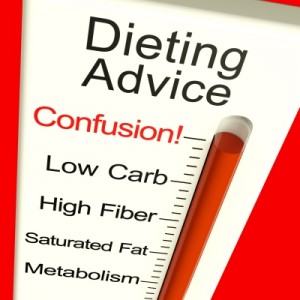- Weight gain;
- Difficulty losing weight;
- Food cravings;
- Overeating.
 Our Approach to Weight Loss:
Our Approach to Weight Loss:
There are many factors that influence weight. We focus on fixing the “damaged metabolism“. You may be under the impression that in order to lose weight you have to burn more calories than you eat, but this works only when the metabolism is healthy. In a person with a damaged metabolism, eating less and exercising harder only leads to further damage to their metabolism. It ends up being a losing battle. You may think everything you are doing is “right” in order to lose weight (dieting, restricting calories, exercising harder and longer, etc.), but it is usually only making you worse depending on how damaged your metabolism is.
The bottom line is you must be healthy to lose weight; you don’t lose weight to be healthy.
Cause #1: Hormonal Imbalances
The hormones that control blood sugar and stress need to be in balance in order to lose weight and keep weight off in a healthy manner. Weight loss programs that ignore hormone balancing have little benefits. The main adrenal stress hormone cortisol is a “glucocorticosteroid”. This means one of the major functions of cortisol is to work together with insulin to keep your blood sugar stable. When cortisol is out of balance fat will end up being stored instead of burned for fuel. I refer to cortisol imbalance as a “damaged metabolism” meaning your normal fat burning mechanism is broken. Calorie restriction, skipping meals, eating too many carbs, overeating, eating sweets, and exercising excessively will all cause cortisol imbalance.
 Cause #2: Digestive System
Cause #2: Digestive System
The inability to digest and absorb nutrients properly can lead to food cravings and overeating. Deficiencies in digestive enzymes and stomach acid are common causes of poor digestion and absorption of nutrients. When you are not absorbing properly you will tend to overeat so that your basic nutrient requirements for protein, fats, vitamins, and minerals still get met, no matter the amount of calories it takes you to get them. Another common cause of weight gain is untreated yeast overgrowth, often referred to ascandidiasis. Any significant disruption in immune function will trigger yeast overgrowth, thereby leading to the excessive consumption of carbs and sweets and undesired weight gain.
Cause #3: Detoxification System
People who have chemical toxicity will hold excessive fluid in the body in an attempt to buffer the harmful effects of the toxic chemical substances. This results in weight gain due to bloating and fluid retention that is often mistaken for fat. What compounds this is that most toxic chemicals are also fat-soluble, meaning that your body will essentially trap the chemicals in the fat tissues in order to “protect” the vital organs, making it even harder to lose weight.
What to Expect From Us:
Proper laboratory testing is the key to figuring out if you have a damaged metabolism, and this always begins with an Adrenal Stress Profile. This is a saliva test that measures your cortisol and DHEA over a 24-hour period. Further laboratory testing may be warranted depending on your case. Individual treatment programs vary, but always include nutritional supplements (herbs, vitamins, minerals) as well as lifestyle changes. Only when your damaged metabolism is fixed, and your healthy metabolism is restored, will you then be able to lose the weight you desire.
